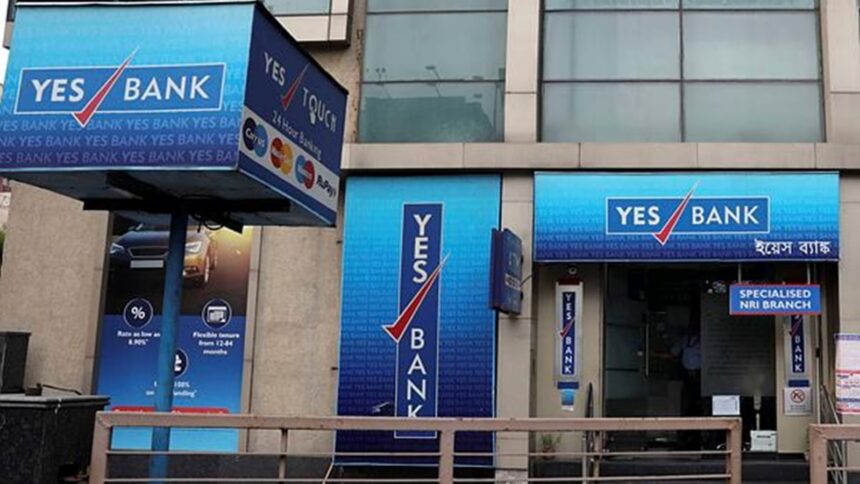The acquisition of a 20 per cent stake in Yes Bank by Sumitomo Mitsui Banking Corporation (SMBC) is being considered as a mutually beneficial deal for both the Japanese banking giant and the Indian banks led by State Bank of India (SBI). While SBI and seven other Indian private banks are expected to gain from the sale of equity, SMBC is likely to eventually take control of Yes Bank. SMBC agreed to purchase 13.19 per cent stake from SBI at a cost of Rs 8,889 crore and 6.81 per cent from other bank shareholders including Axis Bank, Bandhan Bank, Federal Bank, HDFC Bank, ICICI Bank, IDFC First Bank and Kotak Mahindra Bank at a price of Rs 21.50 per share,
Indications are that SMBC’s ultimate goal is to assume management control of Yes Bank. This would mark the second instance of a foreign bank taking over an Indian bank in recent times, following DBS Bank’s acquisition and merger of Lakshmi Vikas Bank in 2020. SMBC is expected to increase its stake in Yes Bank with the Reserve Bank of India’s (RBI) approval, potentially up to 51 per cent. However, the RBI is likely to restrict voting rights to 26 per cent or even less. “SMBC taking up management control is a strong possibility. Much will depend on what the RBI will decide about it. Sumitomo would be keen,” said a person involved in the deal.
“Considering the reputation of SMBC, the RBI can allow them to take the management control. The RBI will go by merit,” said another person familiar with the matter.
When the SMBC stake crosses 25 per cent, the Japanese bank will be required to make an open offer for an additional 26 per cent under SEBI guidelines. SBI is expected to sell the remaining 10 per cent stake in the open offer. Foreign investors CA Basque holds 6.84 per cent stake and Verventa Holdings 9.2 per cent stake. holds 3.98 per cent, according to exchange data.
Yes Bank CEO Prashant Kumar’s term will end in October 2025. It is to be seen whether the next CEO will be a nominee of SMBC. Sumitomo Mitsui group is active in India through its NBFC arm SMFG India Credit (formerly Fullerton India).
The RBI, SMBC and Yes Bank did not respond to queries about the management control from .
As part of the agreement, SMBC will secure two board seats in Yes Bank. The deal’s specifics will be closely watched, as it may have significant implications for Yes Bank’s future direction and the Indian banking landscape as a whole. If SMBC gets 51 per cent in Yes Bank through the open offer, it will involve a total fund injection of over Rs 30,000 crore. It has already invested Rs 13,483 crore to acquire 20 per cent stake.
The entry of SMBC into Yes Bank also marks a significant shift in the Reserve Bank’s approach towards foreign bank involvement in Indian private banks. This development signals a potential change in the central bank’s stance, paving the way for increased foreign participation in the Indian banking sector. The move is being closely watched, as it may have far-reaching implications for the industry’s landscape and governance. “The deal was announced at a time when the conflict with Pakistan was raging and it shows that foreign entities believe in the India story,” said the person involved in the deal.
SBI and seven private sector banks got Yes Bank shares at Rs 10 per share in 2020. SBI which invested around Rs 6,000 crore in Yes Bank has already got Rs 8,889 crore by selling 13.19 per cent and it still has over 10 per cent in Yes Bank. According to the Yes Bank resolution plan in 2020, then HDFC Ltd and ICICI Bank invested Rs 1,000 crore each, Axis Bank invested Rs 600 crore, Rs 500 crore, Bandhan Bank and Federal Bank Rs 300 crore each and IDFC First Bank Rs 250 crore in the bank. Their investment has more than doubled in the last five years.
The Reserve Bank of India superseded the board of Yes Bank on March 5, 2020, due to a serious deterioration in its financial position. The RBI cited the bank’s inability to raise capital and address potential loan losses, which led to downgrades and deposit withdrawals. Moreover, governance issues also played a role.
The RBI action was accompanied by a moratorium on the bank, restricting withdrawals to Rs 50,000 per account. The RBI also appointed Prashant Kumar, former CFO of State Bank of India, as the administrator, and approved a Reconstruction Plan involving SBI and seven other banks. Kumar later became the MD of the bank.
SBI and the seven investor banks had invested in Yes Bank as part of a Reconstruction Scheme approved by the Reserve Bank of India in March 2020. The bank was originally promoted by Rana Kapoor and Ashok Kapur.
Between 2004, when it was launched, and 2015, Yes Bank was one of the buzziest banks. In 2015, UBS, a global financial services company, raised the first red flag about its asset quality. The UBS report stated that Yes Bank had loaned more than its net worth to companies that were unlikely to pay back.
In the quarter ended March 31, 2025, Yes Bank reported a 63.3 per cent rise in net profit at Rs 738 crore, compared to Rs 452 crore in the corresponding quarter of the previous fiscal (FY24).
For the full year, the lender net profit grew by 92.3 per cent to Rs 2,406 crore, as against Rs 1,251 crore in FY24.
Its advances increased by 8.1 per cent to Rs 2,46,188 crore as at March 31, 2025, as against Rs 227,799 crore last year. Total deposit rose 6.8 per cent to Rs 284,525 crore, compared to Rs 266,372 crore as at March 31, 2024. Gross non-performing assets (GNPAs) were at 1.6 per cent, while net NPA improved to 0.3 per cent.








